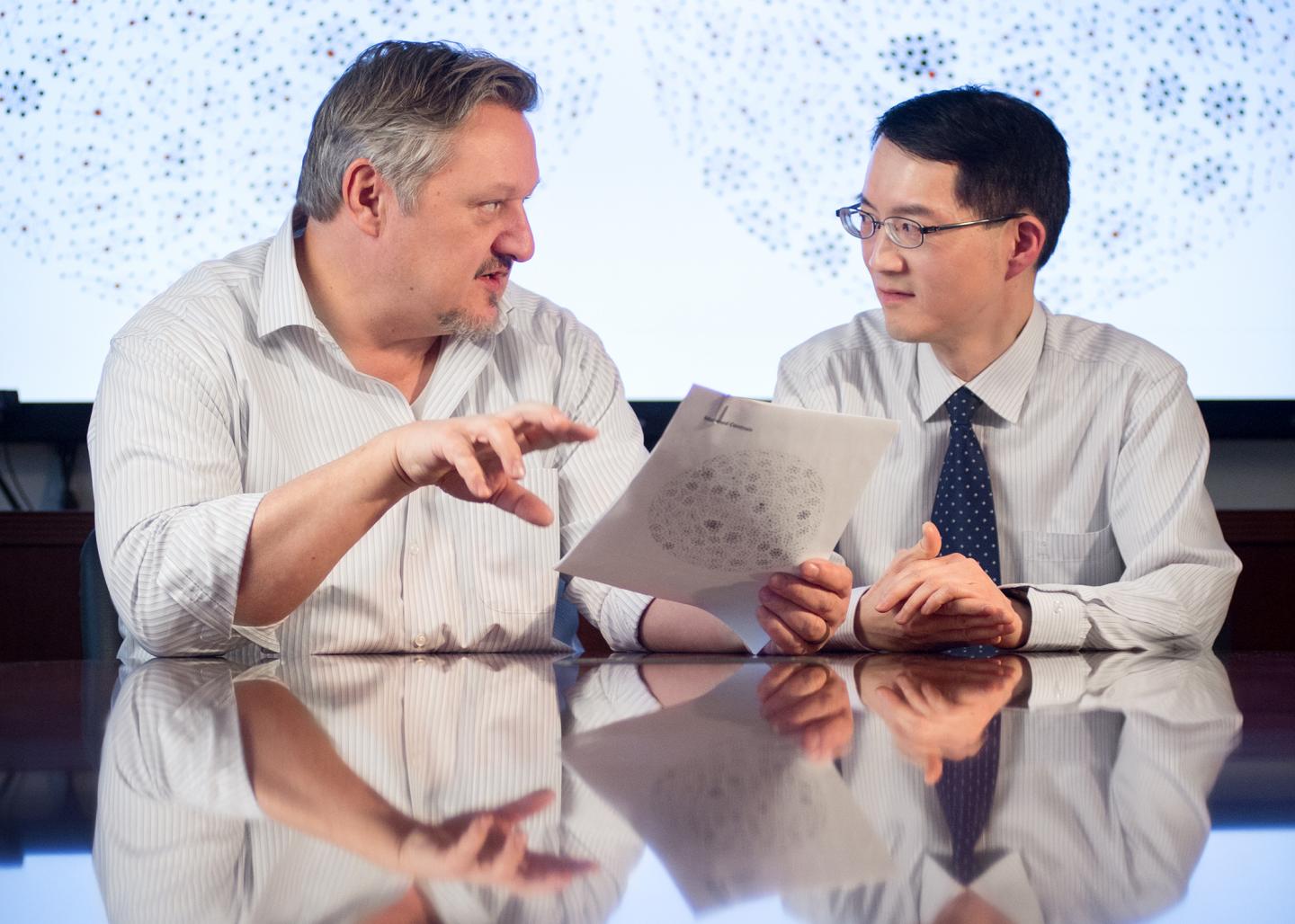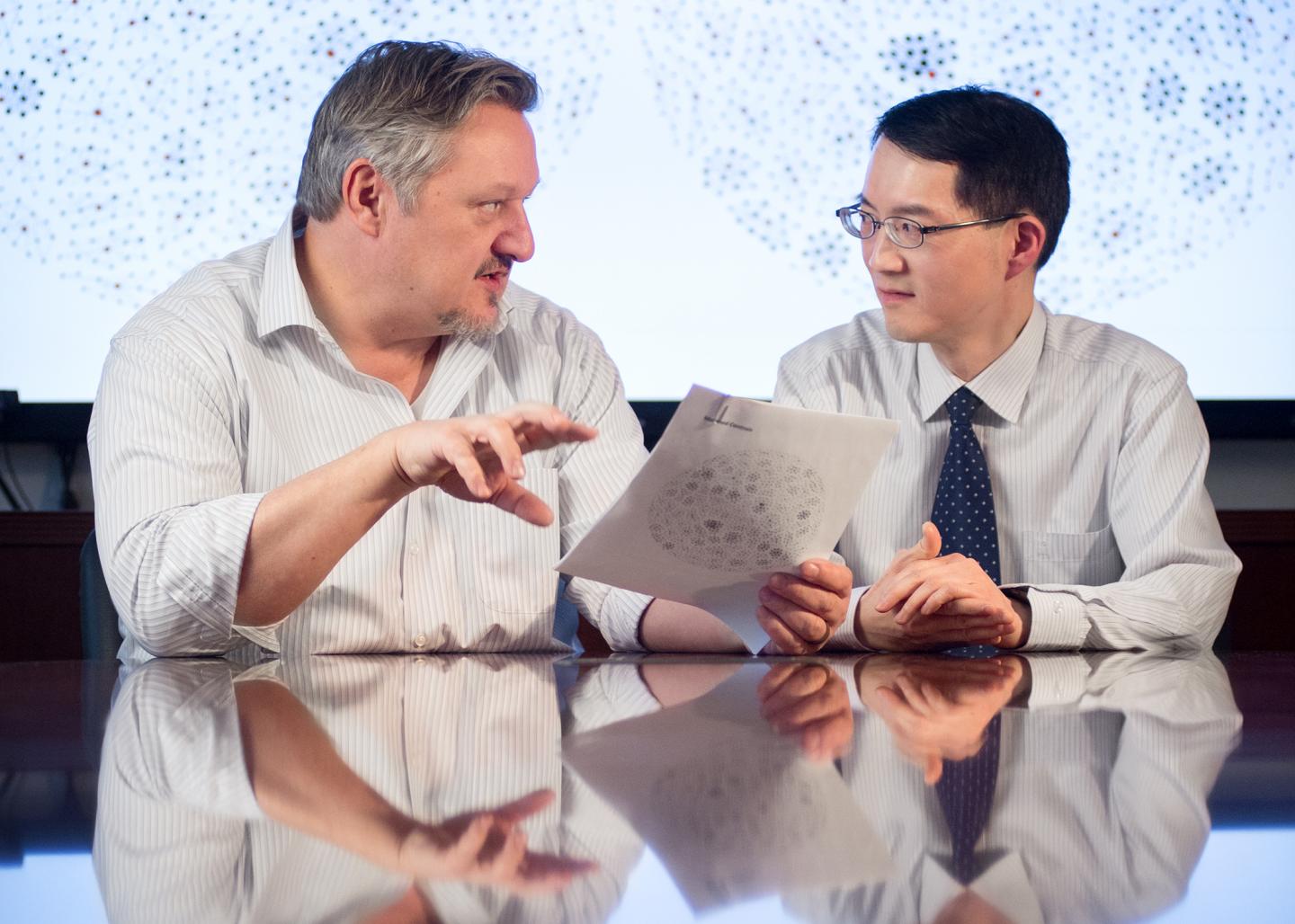
Credit: St. Jude Children's Research Hospital / Seth Dixon
Survivors of adolescent and young adult cancer often have stronger social networks than their non-cancer peers, according to St. Jude Children's Research Hospital researchers, who hope to translate that support into better lives for the nation's growing population of cancer survivors. The findings appear online today in the journal Cancer.
"Cancer survivors need healthy social connections, and to the best of our knowledge this is the first published study to quantify social networks of adolescent and young adult cancer survivors compared to their peers," said I-Chan Huang, Ph.D., an associate member of the St. Jude Department of Epidemiology and Cancer Control, who led the study. "The study introduces a method we developed and validated for evaluating social networks of these cancer survivors."
The method, called the functional social network index, proved a better predictor of survivors' ability to cope with life's challenges than two traditional methods for measuring social networks, researchers reported.
Instead of measuring just the structure of social networks (who knows whom), marital status or membership in church or community groups, the functional social network index also measures social networks as a source of emotional and practical support from friends and relatives, as well as advice about weight management and physical activity. Adolescent and young adult cancer survivors are more likely than their non-cancer peers to be sedentary and overweight or obese.
The study tracked social networks of 102 survivors of adolescent and young adult cancer ages 18 to 30 and a similar group of 102 young adults with no cancer history. Participants were recruited from a commercial national internet survey panel; each of the participants reported detailed social connection information with up to 25 friends and relatives. The survivors were between 15 and 30 years old when their cancer was diagnosed. All were at least five years from completion of therapy.
Compared to those in the non-cancer group, the St. Jude index showed that as a group, cancer survivors had more available resources for emotional and practical support as well as advice on weight and physical activity. "This makes sense," Huang said. "Because of their cancer, survivors often have strong networks of physicians, friends and relatives to provide advice and support."
But the strength of the support network varied by diagnosis. Lymphoma survivors ranked highest on the functional social network index, followed by survivors of leukemia and solid tumors. Survivors of brain and central nervous system malignancies had the weakest social networks, even weaker than their non-cancer peers. A higher social network index was associated with better coping skills, including less denial, less destructive behavior, greater use of emotional and practical support, planning for the future and participating in religious activities.
"Brain tumor survivors may experience more treatment-related neurocognitive problems that make communication and forming social networks more difficult," Huang said.
Long-term follow-up is needed to understand how social networks and social support may change over time. "Adolescents and young adult cancer survivors are in a transitory stage of independence from parents. While this study suggests that survivors often report strong social connections, our previous studies have reported that childhood cancer survivors are more likely than their peers to struggle mentally and physically and report issues like distress and loneliness," Huang said.
Senior author Kevin Krull, Ph.D., said these findings, taken together, suggest that social networks and currently available resources may not necessarily address all the unique needs of childhood cancer survivors, resulting in higher risk for psychological distress. Krull is a member of the St. Jude Department of Epidemiology and Cancer Control.
Huang and his colleagues are working to streamline the functional social network index to make it easier for health care providers to assess support available to cancer survivors of any age.
Meanwhile, researchers are working to better understand how social connections affect health outcomes in order to design interventions to foster those connections. "A lack of social connections with friends and relatives is associated with poor quality of life, risky health behaviors, chronic health conditions and premature death," Huang said. "Once we identify the mechanism between social connections and health outcomes, we can start designing interventions to use social networks to improve health outcomes of cancer survivors."
###
The other authors are Conor Jones, Tara Brinkman, Melissa Hudson, D. Kumar Srivastava and Leslie Robison, all of St. Jude; and Yuelin Li of Memorial Sloan Kettering Cancer Center, New York.
The study was funded in part by a grant (HD057146) from the National Institutes of Health (NIH); a grant (CA021765) from the National Cancer Institute, part of the NIH; and ALSAC, the fundraising and awareness organization of St. Jude.
Media Contact
Corey Carmichael
[email protected]
901-595-0222
@StJudeResearch
http://www.stjude.org
Original Source
http://www.stjude.org/survivors-social-network http://dx.doi.org/10.1002/cncr.31278




